How Many Scoops of Protein Powder to Take per Day?
Author:
Reviewed by:
(Certified Nutritionist, S&C specialist, M.Sc.Eng. Biotechnology)
Unlock your full potential by engaging with our experts and community! Have questions about your fitness journey or looking for expert advice on weightlifting techniques? Don’t hesitate — leave a comment below and Oleksandr Maksymenko will provide a personalized answer and insights to help you reach your goals.
Torokhtiy is reader-supported. Some links are affiliate links, and we may earn a commission at no extra cost to you. See our disclosure page for details.
Consuming protein is essential to make gains, and many athletes these days supplement their diet with protein powder to make sure they’re hitting their daily requirements.
But how many scoops of protein powder a day should you consume — and can it be too much? I’ll be answering this question and providing some useful guidelines in this article.
How Many Scoops of Protein Should You Have in a Day?
There is no set limit to how many scoops of protein powder a day you can consume. However, 1 or 2 scoops of protein powder is enough for most to maintain a good ratio between convenience and nutritional balance.
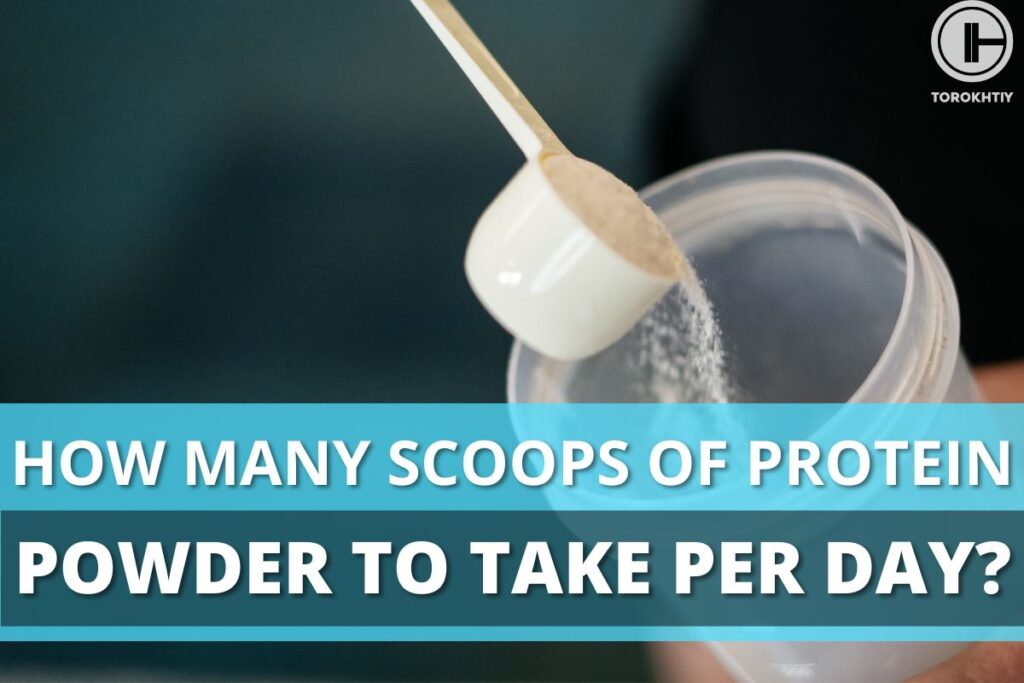
What’s in a Scoop?
One scoop of protein powder can generally range from 30 to 40 grams of powder, with the concentration of protein ranging anywhere from 50% to ~90%, depending on a number of factors, including the type of protein and processing methods used in the manufacturing process.
For example, a serving of milk-based protein powder contains an average of 30-40 grams, of which 24-30 grams are protein. Whereas a serving of vegan protein on average is the same 30-40 grams, of which 15-25 grams are protein.
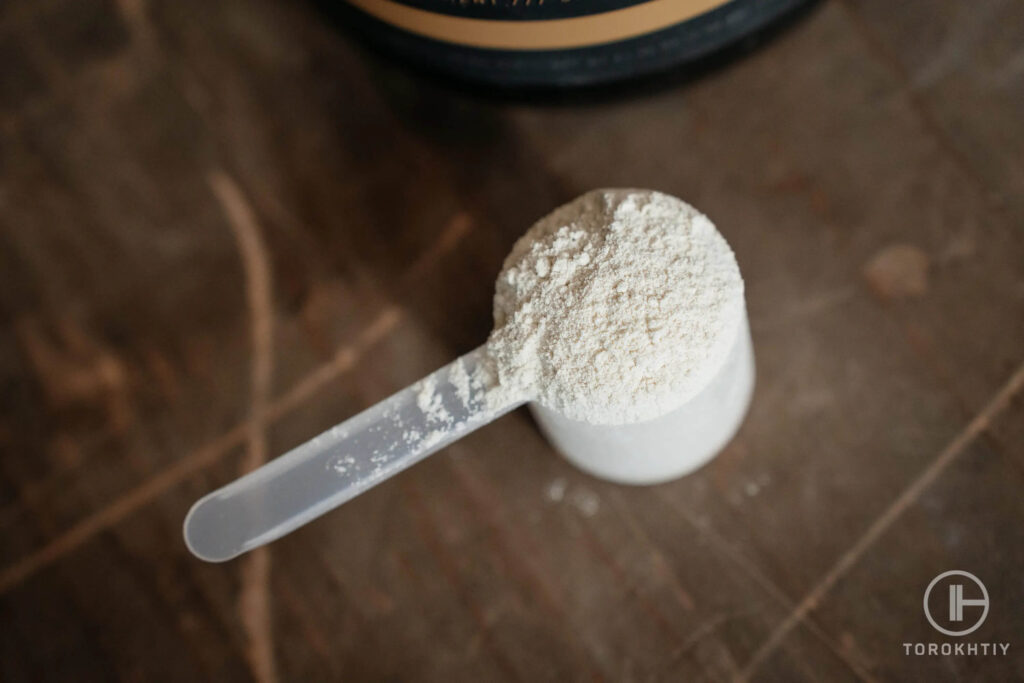
Determining How Much Protein You Need?
Scientific evidence shows that for most people on a normal- or hypercaloric diet, the “sweet spot” of protein to maximize muscle mass and strength growth is 1.6 grams of protein per 1 kg of body weight (approximately 0.72 g per pound of body weight). The upper limit is 2.4-3.0 grams of protein per 1 kg of body weight (1-1.5 g per pound of body weight).
However, the lowest optimal dose can be even 1.4 g of protein per 1 kg of body weight (0.64 g per pound of body weight).
In general, men, especially large-framed, may have the most problems with consuming the needed total amount of protein to maximize their results. In their case, the optimal amount of protein in the form of a supplement is 1.5-2 standard servings.
For women and small-stature men, 1 to 1.5 servings of protein powder per day may be enough. But it all depends on how much protein you are getting by consuming whole foods.

On average, you can get about 25-40 g of protein from 1-1.5 servings of whey protein concentrate or isolate, and 40-50 g of protein from 1.5-2 servings. This is a significant amount of protein, which will go a long way in helping you meet your daily requirements.
As for vegans, regardless of gender and body size, they may need 1.5-2 servings of protein. This is because most vegan supplements have a lower protein-to-weight ratio, so the actual amount of protein per serving is lower than milk-based protein powders.
From 1.5-2 servings of vegan protein, we will get 30 g, 40 g or even 50 grams of protein (depending on the specific product).
Importantly, if you’ve never tried protein powder before, it may be wise to ease your digestive system into your new protein-packed diet and start with just one small serving per day.
If you do not experience digestion issues, you can increase the amount of protein powder you’re taking to hit your macros. Is two scoops of protein too much? If you have never taken protein before, do not consume 2 servings at once.
1. When Bulking
When bulking, the calories you’re consuming are already higher than what you would normally eat to maintain weight, so it’s important to make sure that you’re consistently consuming the amount of protein in line with the recommendations mentioned above.
How many scoops of whey protein per day you should consume depends on how much protein you’re already getting from whole food. If you are gaining muscle mass and already have a good nutrition plan, you might already be getting an amount of protein that’s sufficient or near-sufficient.
In this case instead of taking 3 scoops of protein a day, maybe one scoop of protein powder is enough to hit your daily protein target. However, some may still need 1.5 or 2 servings of a protein supplement.
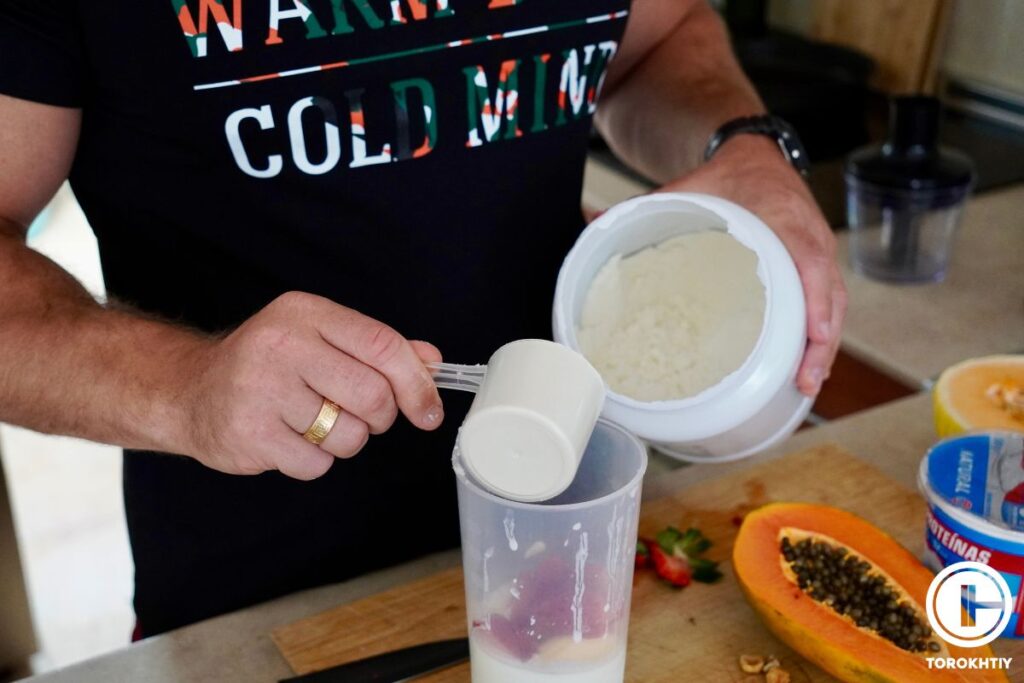
2. When Cutting
While reducing the percentage of body fat, our goal is to preserve muscle mass and strength as much as possible. In conditions of hypocaloric diet (when we consume fewer calories than our body spends), protein requirements for healthy people increase and may be as much as 2.2-3.0 grams per 1 kg of body weight (1 g per pound of body weight).
On the one hand, in this situation, the total need for protein may be even higher, so an additional serving of a protein supplement seems justified. On the other hand, high-protein whole foods have a better satiating potential than a protein shake, and better overall micronutrient composition.
This is especially true in conditions of calorie deficit, when we inevitably eat less whole food, which does not contribute to better satiety and getting a sufficient amount of vitamins and minerals.
Whole food should be the №1 source of macro- and micronutrients, and the supplement may be just an additional source of protein in a convenient form. Don’t forget about the Food-First Approach.
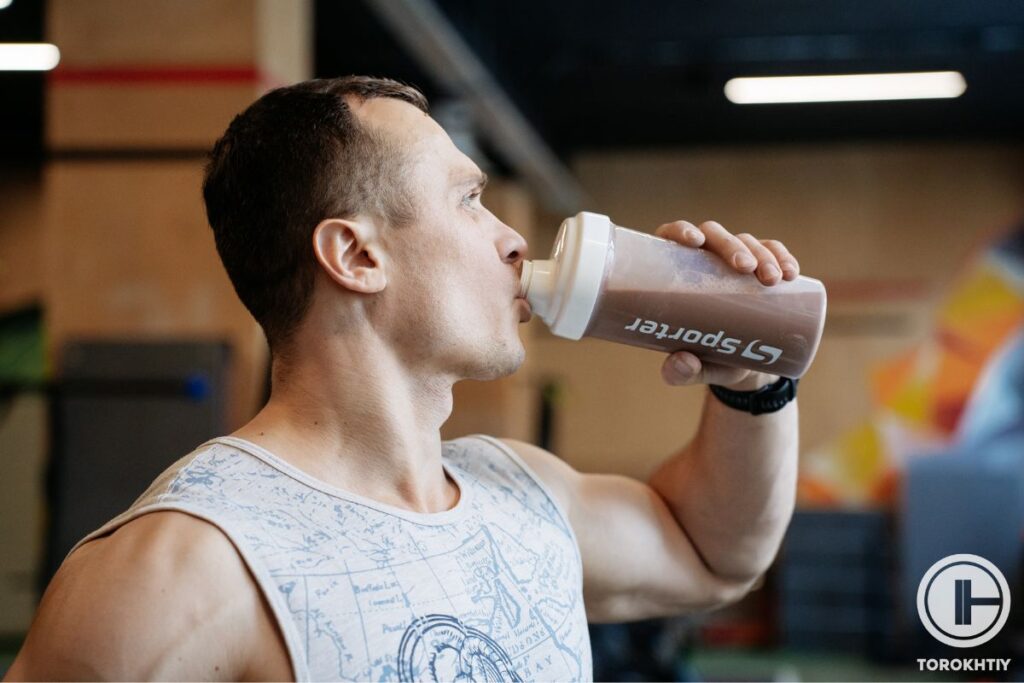
So even with increased protein needs during weight loss, it’s important to maintain a smart balance between the required amount of protein, satiety and micronutrients. For these reasons, during periods of increased protein needs, we recommend consuming no more than 2 servings of protein powder.
3. Higher Body Fat
People with a large amount of fat mass need to calculate the need for protein in terms of the desired weight. For example:
- An experienced athlete weighs 210 pounds and has 14% body fat. When losing weight, he can calculate his protein needs by multiplying his weight by 1 g. In this way, he will get 210 grams of protein.
- A man with 30% body fat weighs the same 210 pounds but wants to get to 165 pounds. In this case, he should multiply 1 g of protein by 165 pounds. The total amount of protein will be 165 g.
4. The Recommended Minimum Amount of Protein to Make Gains
Consider the amount of protein in the recommended range that is affordable and comfortable for you. For example, can you consistently consume 1.8 g of protein per 1 kg of body weight (0.82 g per pound of body weight) without general overeating, gastrointestinal issues, and going beyond your budget?
If you want a solution where you don’t have to alter your lifestyle too much or don’t want to buy a lot of protein (e.g. students on a budget), calculate your protein needs closer to the lower recommended limit.
For example, instead of 1.8-2 g per 1 kg of body weight, use 1.4 g or 1.5 g of protein per 1 kg of body weight. While this amount of protein may be below the amounts needed to maximize your results, this may still be enough to get great results!
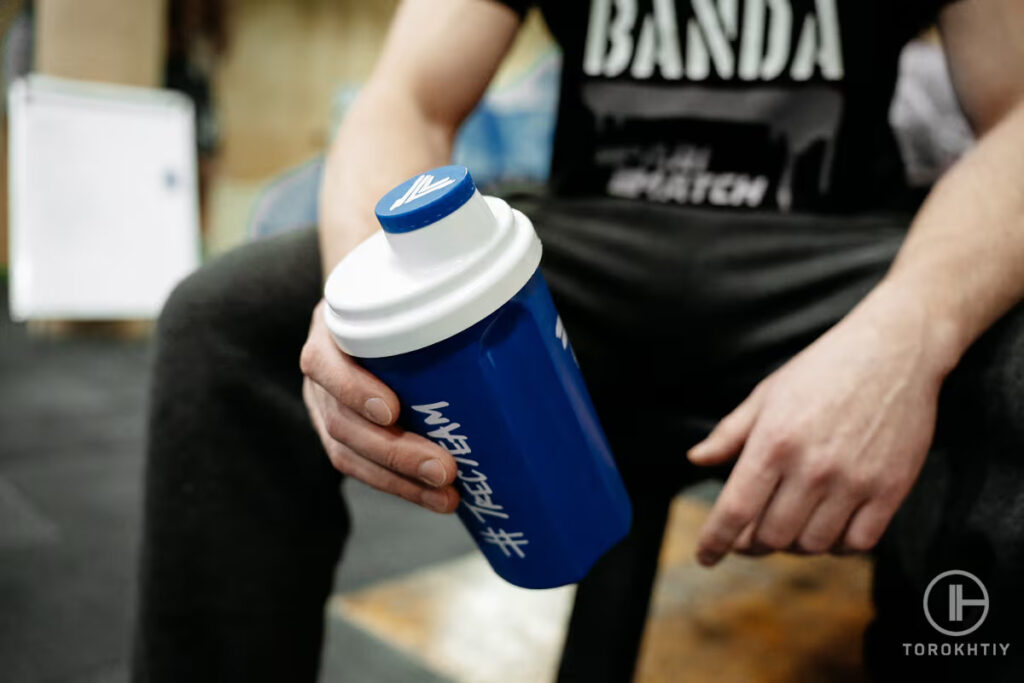
How Many Scoops of Protein Powder After Workout to Take?
In general, one serving with a total of 24-30 g of protein will suffice. Look at the serving size and amount of protein per serving of a particular product.
100 Tri-Protein by Crazy Nutrition
- Diet Type (best for): Weight loss, Build muscle, Recovery
- Suitable for Vegans: No
- Protein Source: Whey Protein Isolate, Whey Protein Concentrate, Micellar Tsasen, Milk Protein Concentrate, Hydrolyzed Whey
- Serving size: ~30 g
- Price per serving: ~$2.1
- Protein-by-Weight Ratio (%): 78-80%
- Protein: 23.5-24 g
- Carbohydrates: 2 g
- Fat: <1 g
- Added Sugar: 0 g
- Calories per serving: 110
- Company Founded: 2016
- Recommended by Athletes: Nelson Lopes, Danni Levy
The protein powder that I’ve been enjoying recently is 100 Tri-Protein by Crazy Nutrition. This product contains a mixture of various dairy-based proteins, including whey isolate, whey concentrate, micellar casein, and milk protein concentrate. An ideal combination of fast- and slow-absorbing proteins in one product!
One serving contains 23-24 g of protein of the highest quality and only 2 g of carbohydrates!
Also, each serving contains a blend of 5 enzymes that will help to better digest and absorb protein, so you can have your shake before your training session, minimizing the chances of discomfort and bloating when getting into position for your lifts. Every 2 months you can use a 30% discount.
This bonus significantly reduces the cost of one serving!
FAQ
Is Two Scoops of Protein Too Much?
How many scoops of protein powder per shake or per day you may use depends on your protein needs and your overall meal plan. We recommend 2 scoops of protein as the maximum amount of supplementation per day. Get the rest of your protein from whole foods.
Is One Scoop of Protein Powder Enough?
If your total protein needs are low-to-moderate (110-150 grams per day) and you eat high-protein whole foods in every main meal, one scoop per day may be enough.
Conclusion
In the context of maintaining a reasonable balance between convenience, real protein needs, getting micronutrients from whole foods, gastrointestinal tolerance and budget, we recommend limiting yourself to a maximum of 2 servings of a protein supplement, however it will also depend on the individual and their daily needs.
But there is no real upper limit in terms of safety of whey protein within daily recommendation for protein intake – the limit should be set to not consume too much protein in a day rather than the number of scoops. Prioritize your food first though.
How many scoops of protein powder do you take in a day? Let me know in the comments.
Also read:
- Muscle Milk vs Whey Protein
- Milk Protein vs Whey Protein
- Whey Protein Can Cause Diarrhea
- Milk or Water for Protein Shake
- Pea Protein vs Hemp Protein
- Protein Powder vs Protein Shake
- Difference Between Hemp and Whey Protein
- Whey vs Egg Protein
- Muscle Recovery Supplements Guide
References:
- Robert W Morton, Kevin T Murphy, Sean R McKella “A systematic review, meta-analysis and meta-regression of the effect of protein supplementation on resistance training-induced gains in muscle mass and strength in healthy adults” Br J Sports Med. 2018 Mar;52(6):376-384 https://pubmed.ncbi.nlm.nih.gov/28698222/
- Ralf Jäger, Chad M. Kerksick, Bill I. Campbell, Paul J. Cribb “International Society of Sports Nutrition Position Stand: protein and exercise” Journal of the International Society of Sports Nutrition volume 14, Article number: 20 (2017) https://jissn.biomedcentral.com /articles/10.1186/s12970-017-0177-8
- Carlos Ruiz-Castellano, Sergio Espinar, Carlos Contreras “Achieving an Optimal Fat Loss Phase in Resistance-Trained Athletes: A Narrative Review” Nutrients. 2021 Sep 18;13(9):3255 https://pubmed.ncbi.nlm.nih.gov/34579132/
- Nicholas A. Burd,corresponding author, Joseph W. Beals, Isabel G. Martinez “Food-First Approach to Enhance the Regulation of Post-exercise Skeletal Muscle Protein Synthesis and Remodeling” Sports Med. 2019; 49(Suppl 1): 59–68. https://www.ncbi.nlm.nih.gov/pmc /articles/PMC6445816/
- Darryn Willoughby, Susan Hewlings and Douglas Kalman “Body Composition Changes in Weight Loss: Strategies and Supplementation for Maintaining Lean Body Mass, a Brief Review” Nutrients. 2018 Dec; 10(12): 1876. https://www.ncbi.nlm.nih.gov/pmc /articles/PMC6315740/
- Photos by Torokhtiy Media Team.
Why Trust Us?
With over 20 years in Olympic weightlifting, strength training, nutrition coaching, and general fitness our team does its best to provide the audience with ultimate support and meet the needs and requirements of advanced athletes and professional lifters, as well as people who strive to open new opportunities and develop their physical capabilities with us.
By trusting the recommendations of our certified experts in coaching, nutrition, and sports training programming, as well as scientific consultants, and physiotherapists, we provide you with thorough, well-considered, and scientifically proven content. All the information given in the articles concerning workout programming, separate exercises, and athletic performance, in general, is based on verified data.
The product testing process is described in more detail here.
Author: Oleksandr Maksymenko
Certified Sports Nutritionist,
MSc Sports Dietetics
Specializing in: Weight management, Fitness / Sports nutrition
Oleksandr is a professional fitness nutritionist certified by the Fitness Professional Association (FPA). He follows the principles of evidence-based dietetics and fosters a healthy relationship with food in his clients, ensuring there are no strict prohibitions on their favorite foods or frequent lapses. His primary goal is not only to achieve results for you but also to sustain them over the long term, all while enjoying tasty and delicious food.
Reviewed by: Jacek Szymanowski
Certified Nutritionist,
M.Sc.Eng. Biotechnology
Performance architect,
Strength and Conditioning Specialist
With over 30 years of fighting experience, specialization in nutrition coaching for athletes, and expertise in metabolic health and dietary strategies, Jacek offers a comprehensive approach to optimizing your performance and well-being. Backed by a Master of Science degree in Biotechnology, Jacek remains at the forefront of scientific advancements, ensuring that his coaching is always evidence-based and up-to-date.




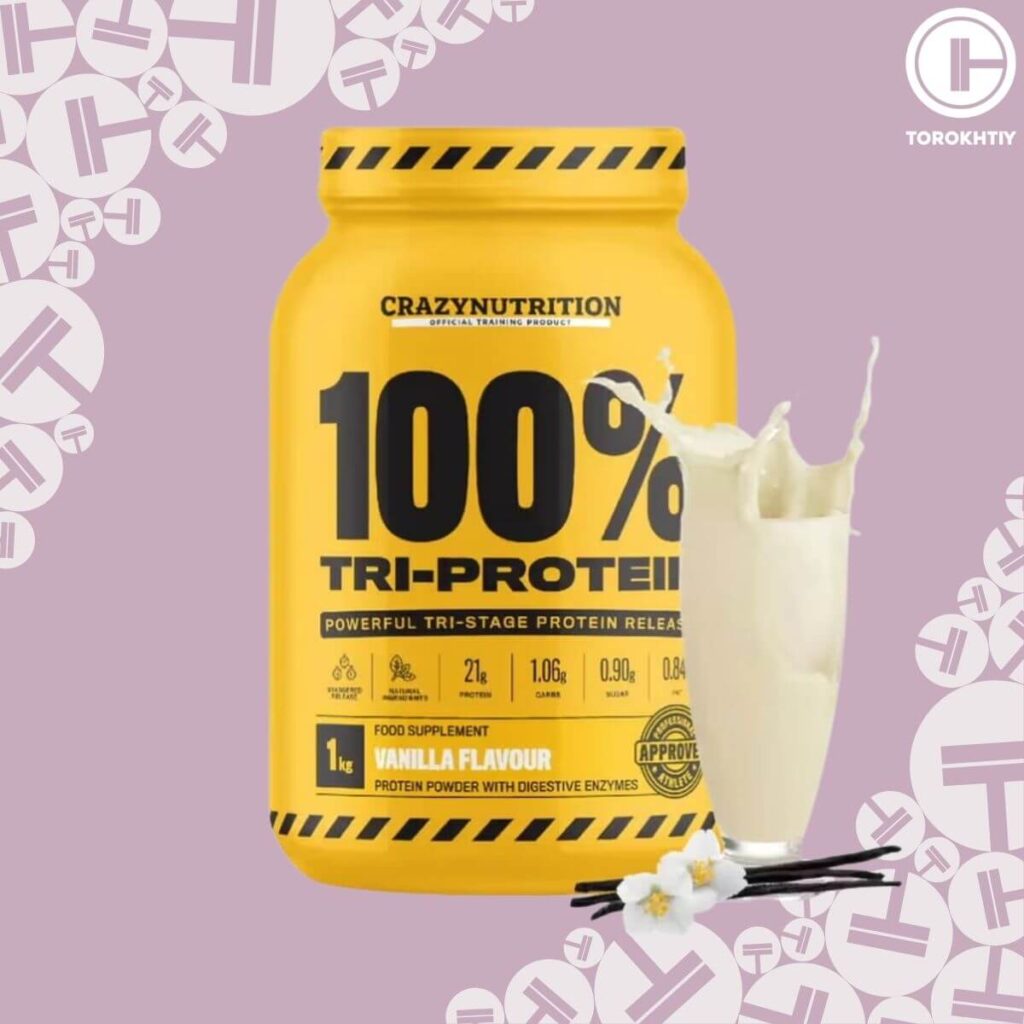
Still have questions after reading our article? Unlock your full potential by engaging with our experts and community! Don’t hesitate — leave a comment below and Oleksandr Maksymenko will provide a personalized answer and insights to help you reach your goals.